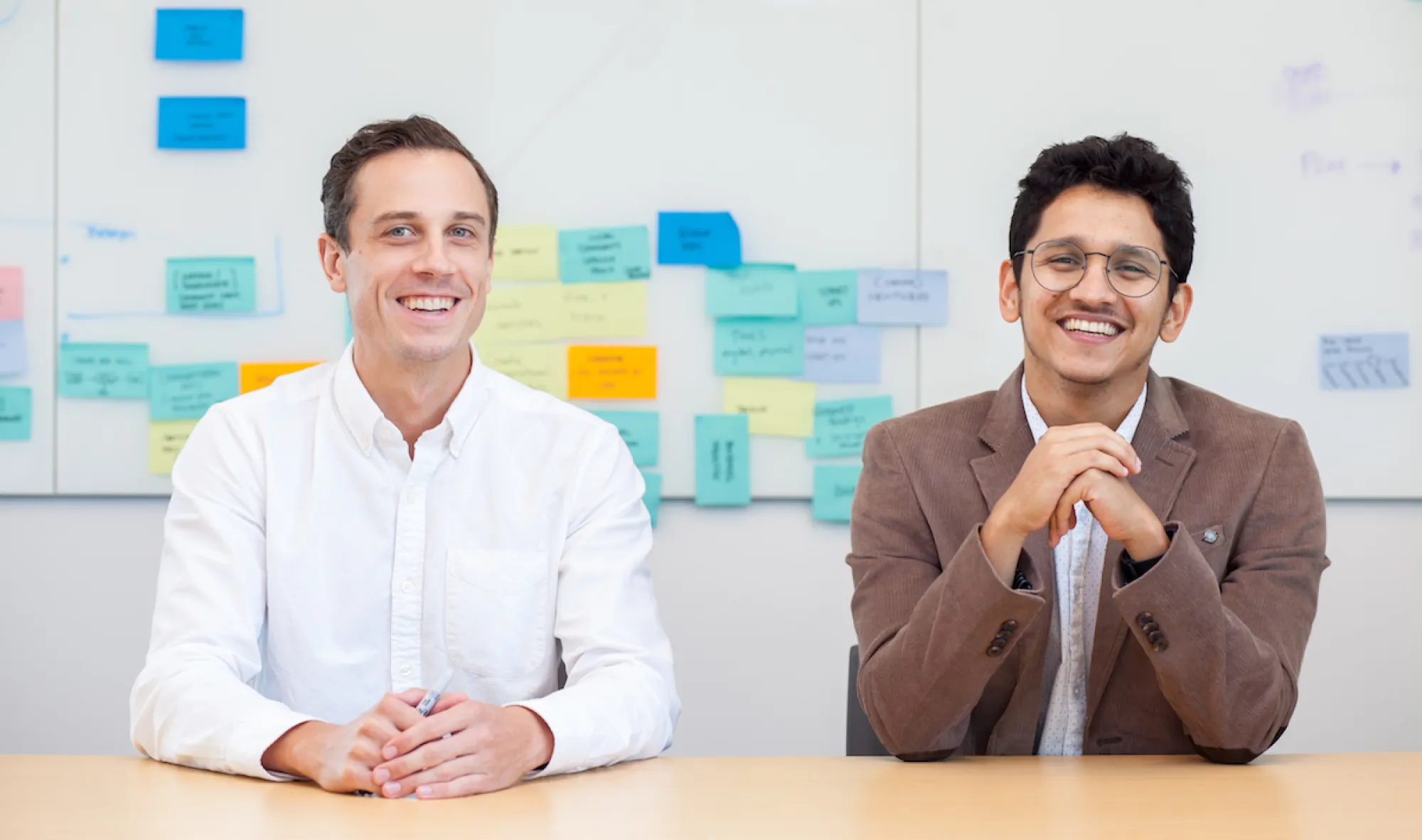Reinventing Health Care With Design

Design Institute for Health fellowships offer hands-on experience in reinventing health care
By Alicia Dietrich
Ajinkya Barve and Eric Zimmerman, both M.F.A. candidates in Design, have very different backgrounds and professional experiences. But their common interest in health care drew them to apply for fellowships with the Design Institute for Health, a partnership between the College of Fine Arts and the Dell Medical School that uses a creative design-based approach to address the nation’s health care challenges and rapidly integrates that perspective into medical education and community health programs. The institute is led by two veterans of the internationally recognized design firm IDEO: Stacey Chang and Beto Lopez.
Barve grew up in India, where he did his undergraduate work in product design. He was introduced to health care design through an internship with IDEO in Chicago.
Zimmerman, on the other hand, had no formal design training—he holds a Master’s Degree in Public Affairs from the LBJ School of Public Affairs and most recently worked as a public sector consultant for a small firm in New Mexico before applying for the fellowship.
The institute selects two new graduate fellows every year, and the two-year fellowship is designed to gradually bring the students into the fold as support designers at the Design Institute for Health, where they work with various partners in the community and health care industry on different engagements. The first semester of the fellowship is designed to allow the fellows to get oriented to the program and become familiar with the processes and pace of the Design Institute. In their second semester, the fellows work on a project that aligns with their professional interest and background, while supporting on other team projects. The fellows continue to support some of the Design Institute’s ongoing work in their second year while they complete their M.F.A. thesis..
Barve is currently working on a public-facing, community-oriented physical outpost of the Dell Medical School Library to make it accessible for community members to come in and access information about their health. He will explore questions about the physical interactions that can happen within UT Health Austin’s outpatient clinics in the new Health Transformation Building, how people want to receive information and how to onboard a person and teach them to use the resources.
Zimmerman has an interest in the intersection between health and transportation—a topic he’s further exploring in his master’s thesis—and has been working on a pilot project between the Dell Medical School, Community Care Collaborative and nonprofit ridesharing service RideAustin to provide transportation to medical appointments for some of the community’s most vulnerable patients.
“I'm trying to learn as much as I can while I'm here and soak up all the knowledge and information and experience so I can hit the ground running when I'm done,” said Zimmerman, who hopes to continue doing similar work once he graduates this spring.
Barve plans to use what he’s learned to help improve health care systems in India, which are rapidly evolving. “The problems that the U.S is facing right now are the same that will be faced in India in about 10 years. It's good to have this experience and see these things evolve from scratch and apply that learning to some of those plans.”

